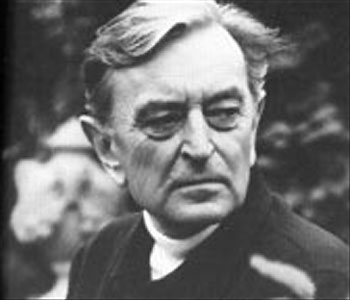
I recently viewed four films by the guy who's probably considered the greatest British filmmaker after Hitchcock: Blithe Spirit (1945), Brief Encounter (1945), Lawrence of Arabia (1962), and Doctor Zhivago (1965).
The first two are small-scale, fairly intimate productions based on Noel Coward plays. Blithe Spirit is amusing, but a little too droll for my tastes. It's interesting to note that one of the most popular productions in London at the height of World War II was this quick-witted comedy in which the afterlife is just another place to fling witticisms and try to avoid your wife.
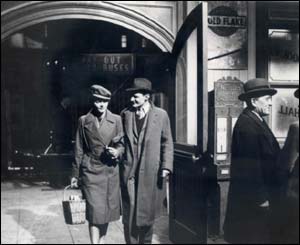
Brief Encounter is much better, and much more heartfelt. You really get a sense of what it was like to live in England at this time, shopping, going to the cinema, smoking, and living lives of quiet desperation. It reminds me a lot of the contemporaneous American The Best Years of Our Lives. Really strong filmmaking too, with narrative and visual flourishes and control far above the very stagy Blithe Spirit.

Lawrence, of course, everybody's seen, but it was nice to see in a 70mm print at LACMA. I last saw this movie in 2000, and the movie's so big I had forgotten a lot of its details. The first half is much stronger than the second, with a powerful narrative drive and almost all of the visuals that one remembers afterwards. The second half rather peters out, but it does seem to come full circle with the beginning of the movie and Lawrence's death by motorcycle. Also, I was struck by how ambivalent Lean seems to feel about British military authority and diplomatic maneuvering; he doesn't seem to agree that British imperialism in the Middle East was a completely good thing.
Doctor Zhivago is the most uneven and deeply flawed of the four movies, but has its share of great moments. This time the first hour is a tough, exposition-ridden slog to get through and the good stuff doesn't start until the war and Revolution come. Omar Sharif's Yuri Zhivago is kind of passive and uninteresting, but fortunately you can always look at Julie Christie when you get bored:
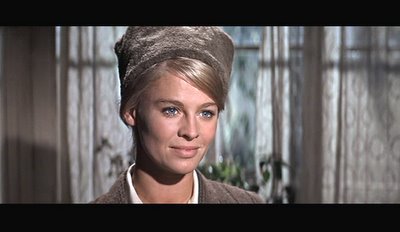
Another movie with an interesting political subtext, as the Russian Revolution is viewed with horror, to be sure, but the movie's happy ending is tied in with the triumphs of the workers: specifically, a big powerful hydroelectric dam.
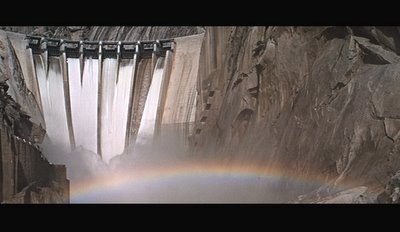
Also, that rainbow's not the only thing Spielberg stole from this movie to put into E.T.:
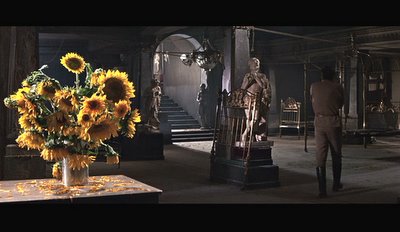


1 comment:
Thanks for the great review...That was really a classic movie..I have a dvd of that with me.....
Post a Comment